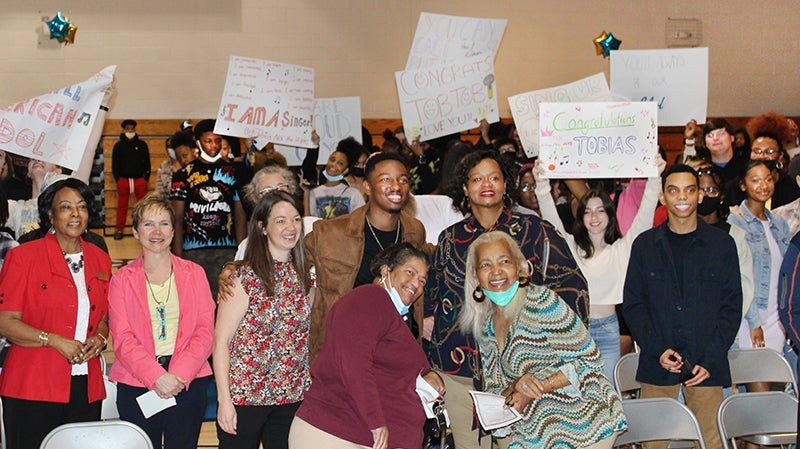Ahoskie Council approves ordinance
Published 10:17 am Monday, July 18, 2016
AHOSKIE – The Ahoskie Town Council at its regular July meeting on Tuesday unanimously approved an ordinance that sets up a business registration system that will help town government keep track of businesses operating within Ahoskie town limits.
With the General Assembly’s repeal of most local privilege license taxes (LPLT), effective July 1, 2015 (NCGS 160A-194); local governments lost a significant revenue stream. Just as important, the demise of most LPLT’s also deprived towns in the state of an important source of information about who is doing business within their borders. Such information could have a variety of uses relevant to the public’s well-being. For example, according to the UNC School of Government, it could help a city, or town, identify the right person to contact about, say, dangerous conditions on business property.
As a way of keeping track, some local governments began to consider business registration programs as a way to keep track of local businesses, but before implementation it had to be approved by town/city councils; thus the call for an ordinance.
“We no longer have privilege licenses, so we now charge a registration fee, and that flat fee is $25,” said Town Clerk Joleatha Chestnutt, in explaining the need for the ordinance to Council. “But, for purposes of switching over from privilege licenses to registration, we are issuing certificates and they have to have them (displayed) at their place of business.”
Chestnutt said the ordinance would give her office the authority to collect the registration fee from businesses that might refuse to pay the fee; and to maintain a track for new businesses.
“It’s pretty basic, really,” she continued. “The itinerant merchant’s fee is still $100 every six months. If they are a peddler on foot it’s $10, but businesses on vehicles (non-stationary locations) will pay $25.”
Councilman Justin Freeman asked about the method for collecting the fee.
“I send out a letter in May along with an application because it’s in July when they have to have it posted,” Chestnutt explained. “The application asks that they update everything like phone numbers, emails, and especially 9-1-1 in case something happens to the building and we need to contact the property owner, we would have that information as well.”
Chestnutt said over 300 applications had been mailed out for the current fiscal year (July 1-June 30) for which time the fee is valid. Thus far, she said the town has collected somewhere around $7,500-$8,000 thanks to the fee.
Councilman Charles Reynolds inquired about the eligibility of various businesses to the registration.
“Any business that is not within the town’s city limits are not required (to register),” she replied.
Town Manager Tony Hammond said non-profits, doctors, attorneys, and some others who were exempt under the old privilege license statues retain their exemption.
“Know who the businesses are that are operating in the town, and to make sure our data is correct,” Hammond said. “See, we have to coordinate the 9-1-1’s under our new 9-1-1 system.”
Chestnutt said she researched what some other towns similar to Ahoskie were doing and the fee of $25 appeared to be standard.
“There’s nothing higher than $25,” she insisted. “We really can’t go higher than $25.
“It’s not a replacement for lost privilege license tax revenue, but more a regulatory system,” Chestnutt elaborated. “I wanted an ordinance in place for those who might question why a fee is being charged. That’s the only way we can keep up with businesses – new and old – in the town. Most of the businesses are faithful in paying … I (sometimes) have to send second notices, but I will not be issuing a late fee.”
Hammond said if adopted, the ordinance (No. : 2016-2017-1) would be effective immediately.
When discussion ended, Reynolds then made a motion to adopt the ordinance, seconded by Councilwoman Linda Blackburn, and it passed by a 3-0 vote, as Councilmen Rev. C. David Stackhouse and Charles Freeman had excused absences from the proceedings.


